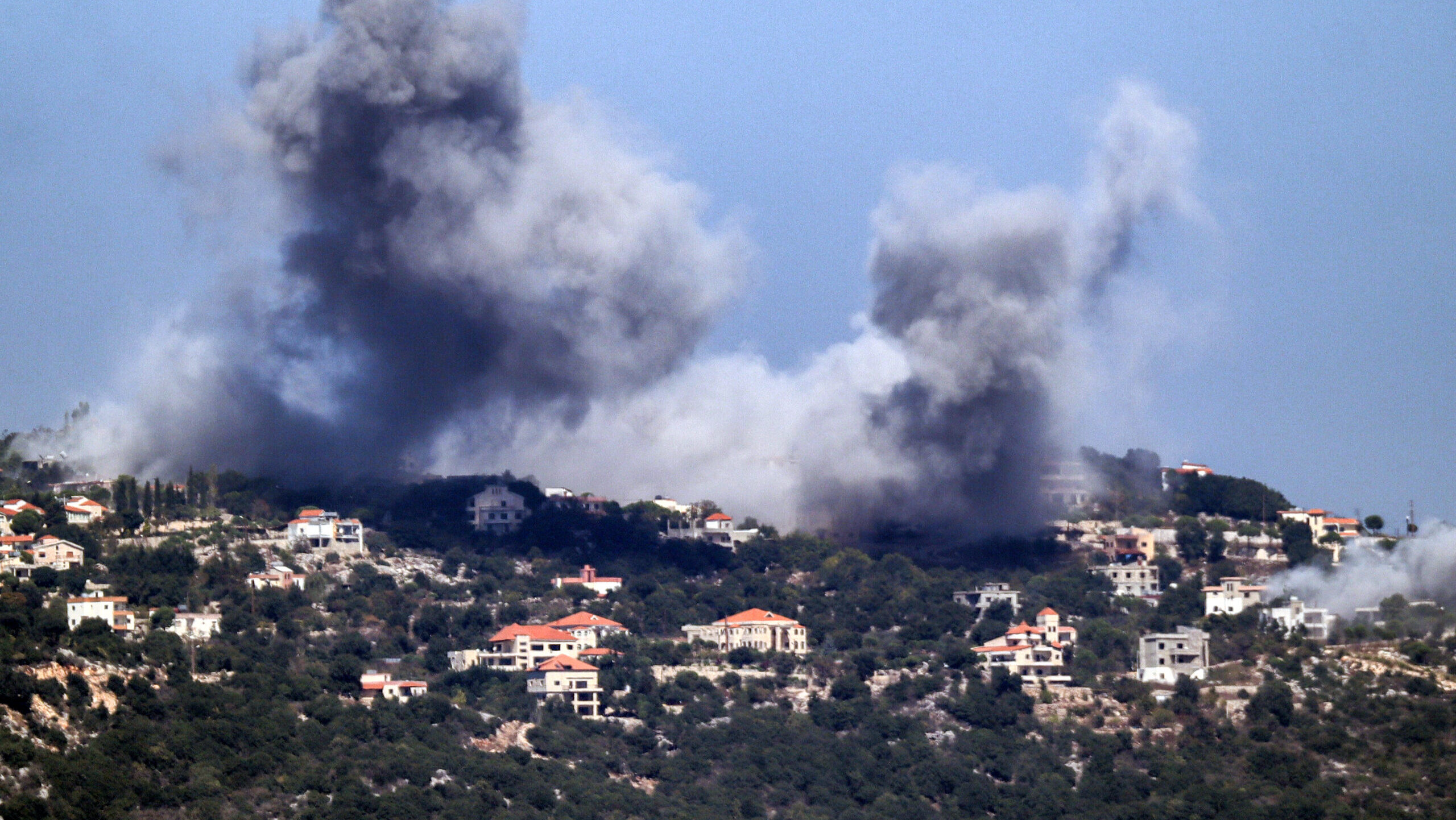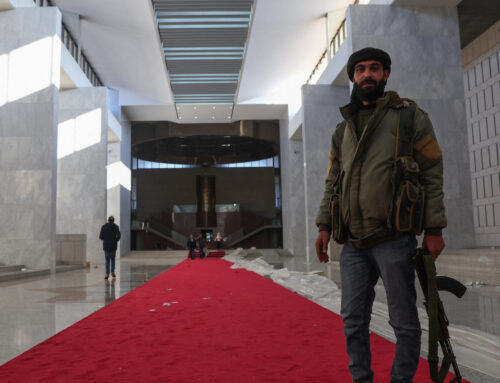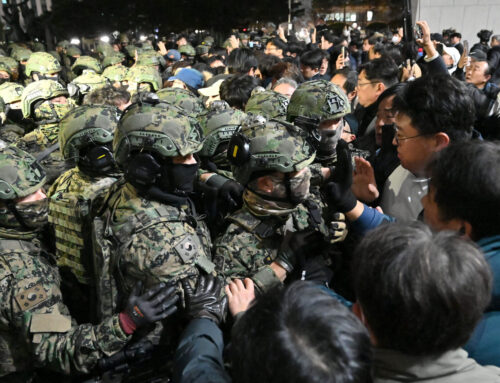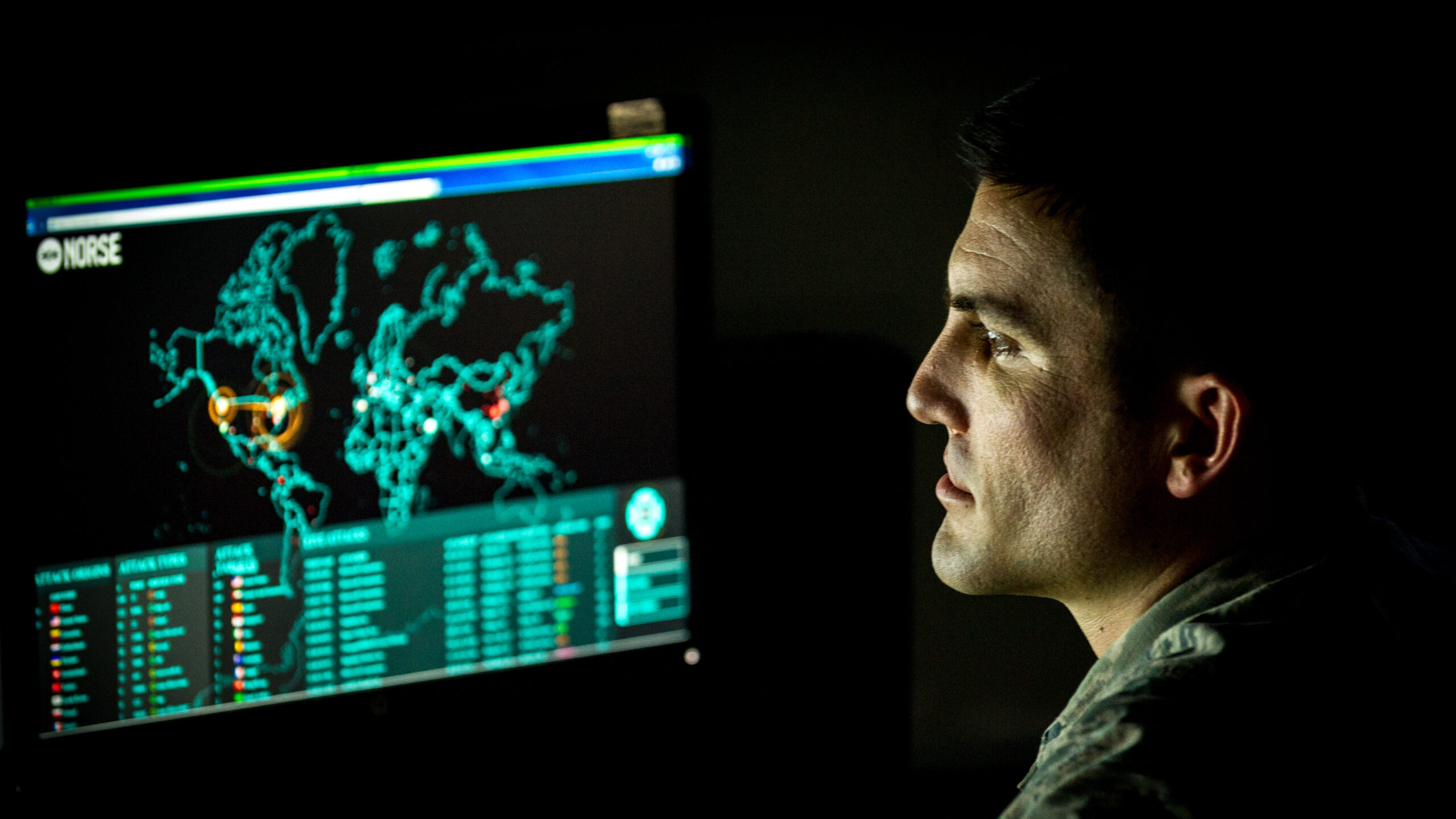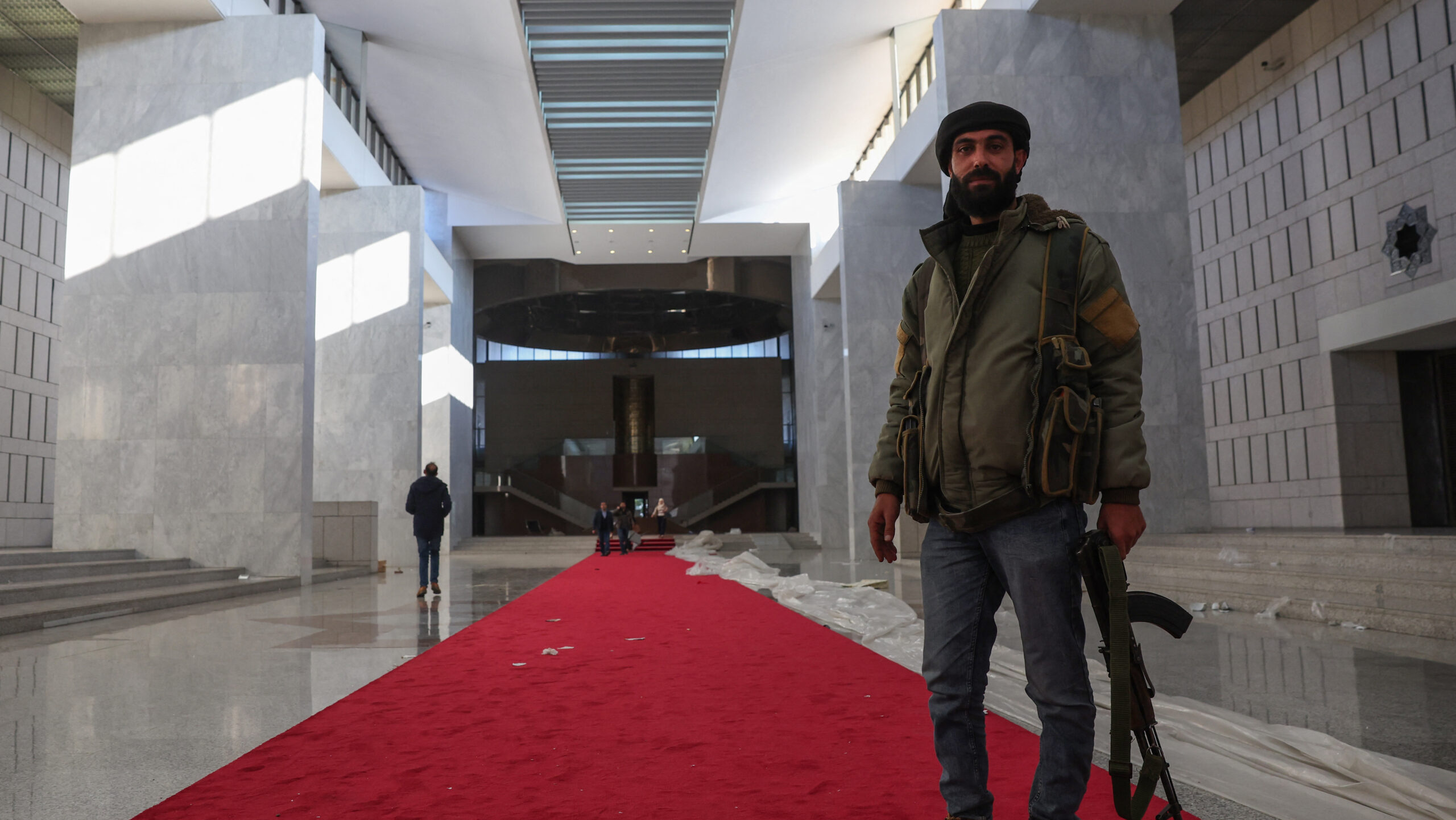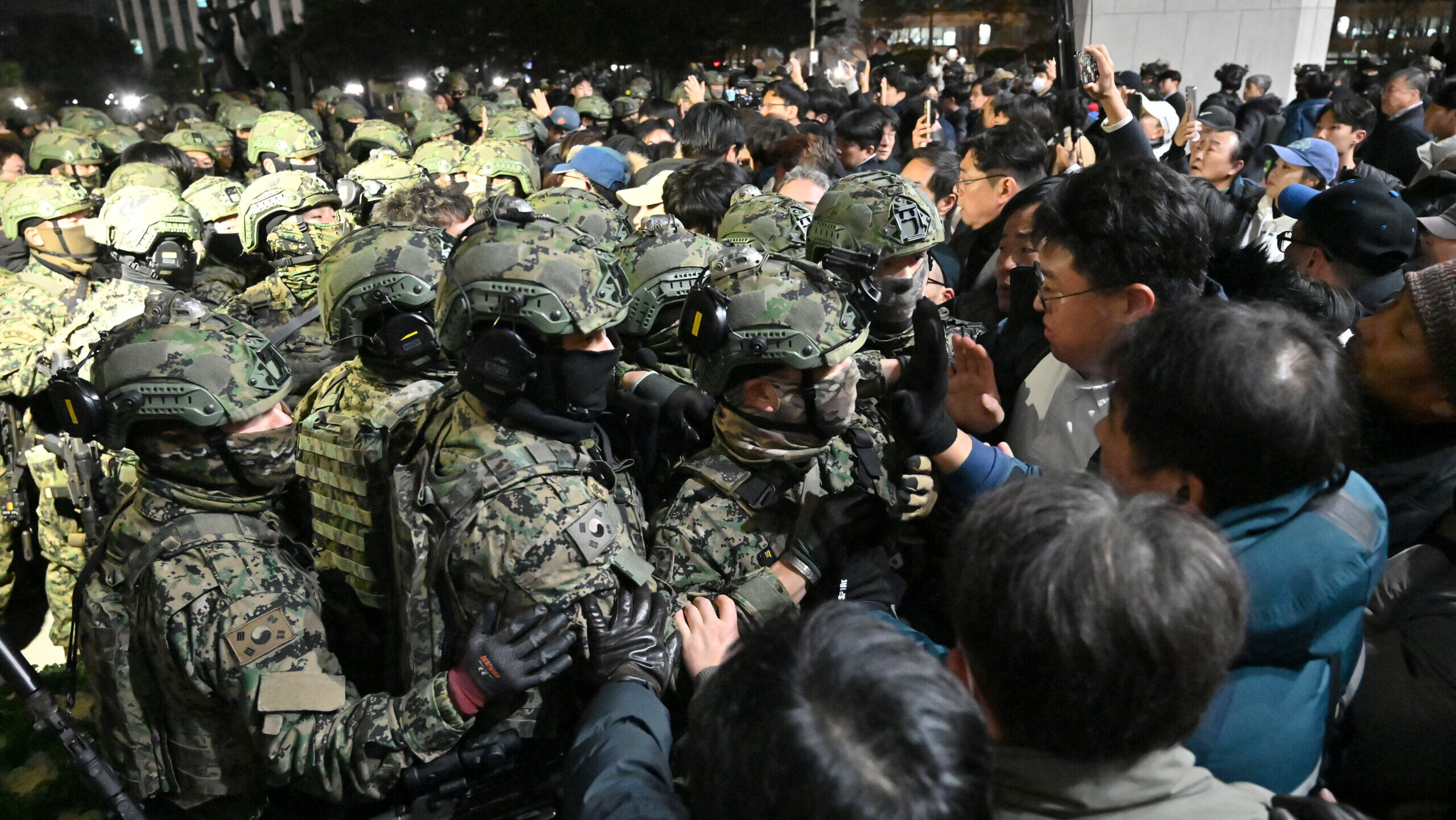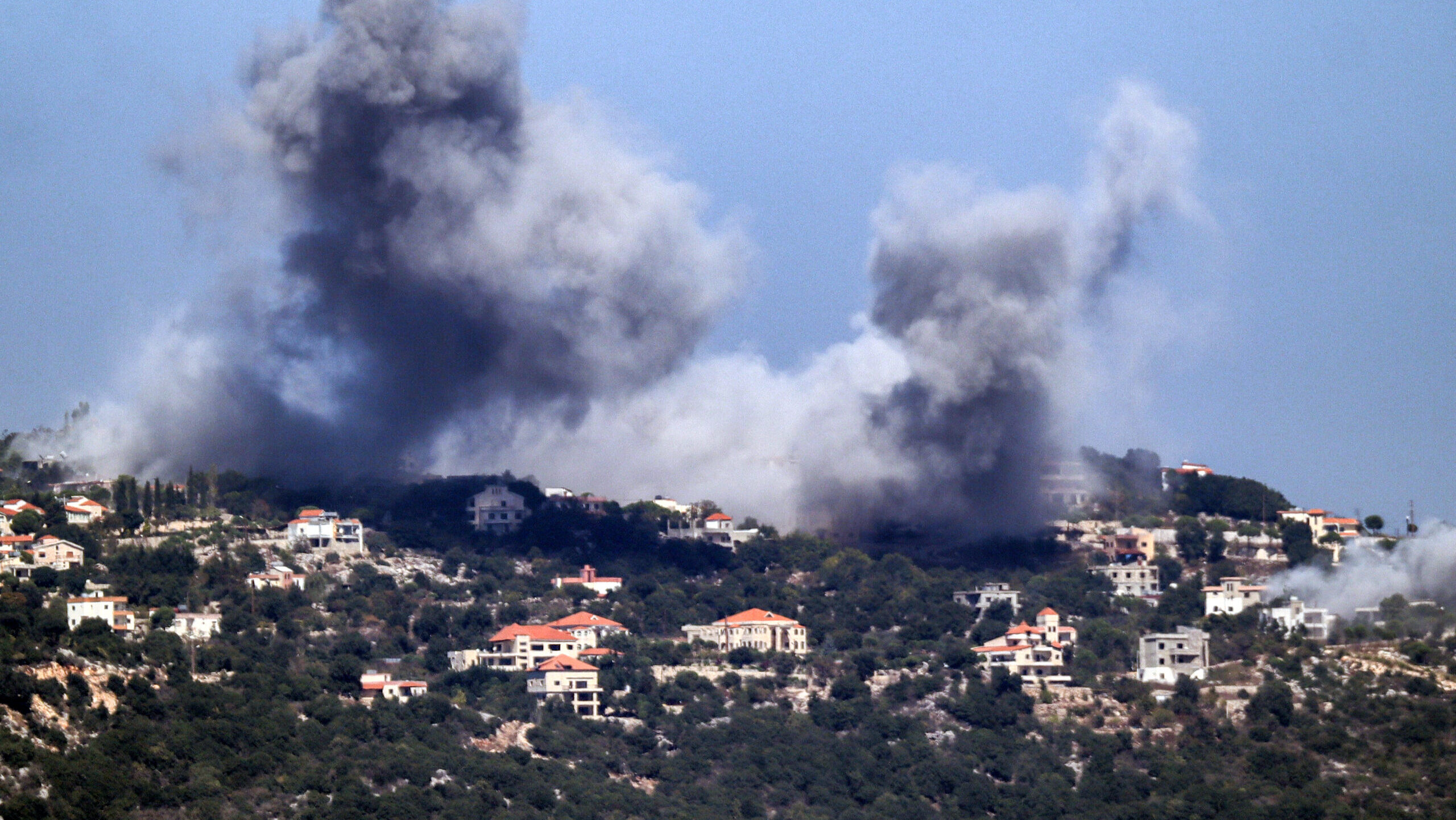
A cloud of smoke erupts during an Israeli air strike on the village of Sujud in southern Lebanon on September 25, 2024. (Photo by RABIH DAHER/AFP via Getty Images)
BEIRUT — As the war drums fade in Lebanon and to the east the half-century Syrian regime has toppled, I’ve leaned toward labeling 2024 as “the year the Middle East was reshaped.”
[This article is one of many in a series in which Breaking Defense reporters look back on the most significant (and entertaining) news stories of 2024 and look forward to what 2025 may hold.]
The conflict between Israel and Lebanese group Hezbollah reached a ceasefire after a dramatic course of events including an Israeli attack on Hezbollah that included exploding pagers and walkie talkies, Israel targeting storage warehouses in civilian neighborhoods, and the assassination of Hezbollah Secretary General Hassan Nasrallah.
The US-mediated ceasefire launched a 60-day truce between Israel and Lebanon starting on Nov. 27, with a monitoring committee comprised of the US, France, Lebanon, Israel and the United Nations Interim Forces in Lebanon (UNIFIL).
Then, on Dec. 8 Bashar al-Assad fled to Russia while rebel forces swept through the country and captured Damascus. After the regime collapse, eyes moved to the fate of the Russian military bases in Syria and the potential collapse of an Iranian weapons pipeline to Hezbollah.
In late 2023, the Red Sea saw attacks from the Yemen-based Houthi rebel group, which led to an international coalition to secure the waters. Notably, Saudi Arabia and the UAE were absent from these coalitions, and Bahrain was the only Gulf state to take part in the US-led operation Prosperity Garden.
Increased Partnerships And Production
While parts of the Middle East reeled from those geopolitical earthquakes, the defense industries of other nations in the region doggedly pursued their own goals, including parallel focuses on localization and expansion with international partnerships.
For instance, Qatar’s Barzan Holdings is cementing the investments it’s already made in platforms like unmanned vehicles, counter-UAS solutions, command and control systems and ammunition. “We have built a good portfolio in the last seven years, and we are planning to strengthen this portfolio in these sectors,” deputy CEO Mohammad Al Marri told Breaking Defense in a March interview at DIMDEX in Qatar.
“We are not planning to diversify since what we have right now is competent enough. Our focus for the next five years is to ensure capability and sustainability for our platforms,” he added.
UAE defense conglomerate EDGE Group expanded in 2024 its international reach with cross border cooperation plans, including founding an ammunition production line in Indonesia, signing an agreement with Italian shipbuilder Fincantieri to codevelop underwater solutions in the UAE, and signing another agreement with the Brazilian navy to codevelop counter-drone systems.
“This year [2024] for us is a year to catch up on our deliveries, our commitments, whether that is a delivery of a solution, or a development,” Hamad Al Marar, EDGE Group CEO told Breaking Defense in February.
The firm also made its first stride in the space domain this year, launching a new company dubbed FADA.
Saudi Arabia has worked on its ambitious defense plans this year, as it eyes to join the international sixth-generation fighter jets program, GCAP. Saudi Arabian Military Industries showed off its defense plans and platforms developed at second edition of the World Defense Show this year.
Turkey made confident strides in its defense production projects. Its national fifth-generation fighter jet, dubbed KAAN, performed its maiden flight in February. Ankara also launched its first mostly indigenous communications satellite to orbit and expanded its deals with other nations, including its first export contract to a NATO nation.


